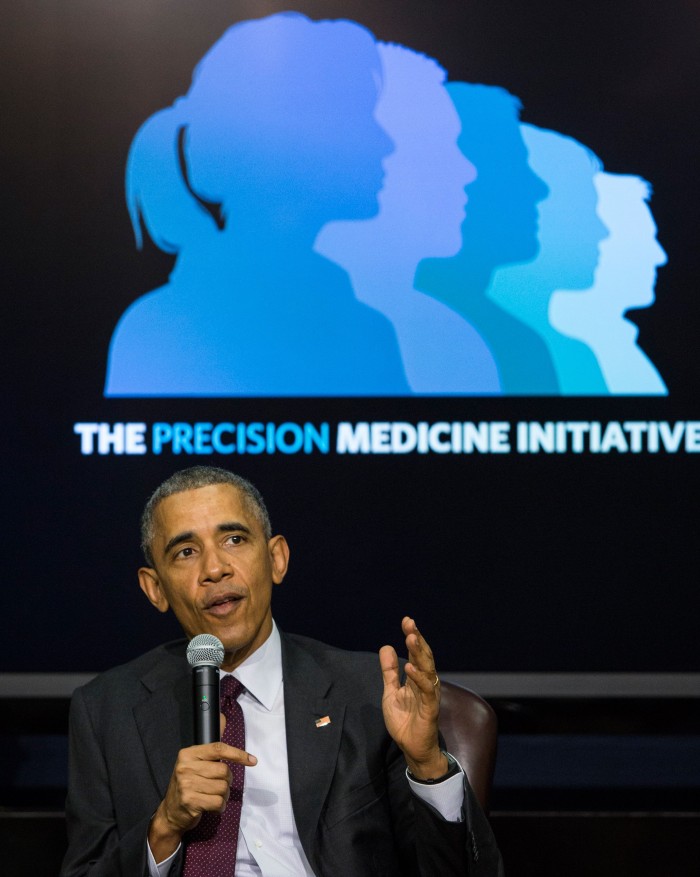A Shot in the Arm for Obama’s Precision Medicine Initiative
Precision medicine is a big idea. Tailoring drugs and therapies to a patient’s individual disease, lifestyle, environment, and genes could touch off a health-care revolution, or so the thinking goes. But first there is much we need to learn about what that all means to a person’s health. That’s why the Obama administration announced Wednesday evening that it is devoting $55 million this year to the creation of a public database containing detailed health information about a million or more volunteers. It’s also why it’s trying to figure out how to better regulate the fast-growing genetic testing market.

Called the Precision Medicine Cohort, the database will be the “largest, most ambitious research project of this sort ever undertaken,” said Francis Collins, director of the National Institutes of Health, during a call with reporters. It will contain medical records, sequenced genomes, blood and urine tests, and even data from mobile health tracking devices and applications. Collins stressed that the database will represent people from all races, ethnicities, and socioeconomic classes, and said it will track participants over many years.
In a separate but related project, also announced Wednesday, the U.S. Food and Drug Administration published draft guidance documents on how it might police the exploding field of genetic testing. The agency is concerned that a new generation of genetic tests could risk patient safety. The technology underlying these tests can quickly and inexpensively sequence an entire genome and identify millions of genetic abnormalities at a time. But interpreting the results is still a work in progress.
Many of the tests purport to tell patients whether they have or are at risk for certain diseases and even direct them toward targeted therapies. The whole area has been largely unregulated, but the FDA aims to use its regulatory power to assess how accurate and clinically useful the tests really are.
Advanced tests like these are “pivotal to the future promise of the Precision Medicine Initiative,” said Robert Califf, the FDA’s commissioner, but that promise is only “as good as the tests that guide diagnosis and treatment.” Califf wouldn’t say when the new regulations would be finalized, but the new information should clarify some of the regulatory uncertainty facing companies that develop such tests.
Keep Reading
Most Popular
Large language models can do jaw-dropping things. But nobody knows exactly why.
And that's a problem. Figuring it out is one of the biggest scientific puzzles of our time and a crucial step towards controlling more powerful future models.
The problem with plug-in hybrids? Their drivers.
Plug-in hybrids are often sold as a transition to EVs, but new data from Europe shows we’re still underestimating the emissions they produce.
Google DeepMind’s new generative model makes Super Mario–like games from scratch
Genie learns how to control games by watching hours and hours of video. It could help train next-gen robots too.
How scientists traced a mysterious covid case back to six toilets
When wastewater surveillance turns into a hunt for a single infected individual, the ethics get tricky.
Stay connected
Get the latest updates from
MIT Technology Review
Discover special offers, top stories, upcoming events, and more.